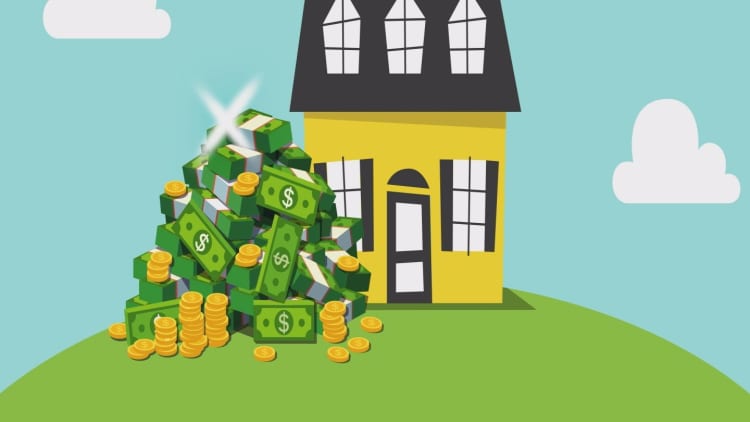Today's homebuyers don't need another headwind. They're already facing one of the tightest, most competitive housing markets in history, with home prices rising far faster than incomes, mortgage rates climbing and the supply of homes for sale continuing to shrink.
Now add higher gas prices to the toxic mix.
The average price for a gallon of regular gas is up 60 cents compared with a year ago, according to AAA.
While there is no specific data on how they correlate specifically to home sales or prices, gas prices definitely play into consumer confidence about personal finances — both going up and coming down. When prices fell heading into 2015, some claimed that was a boost to the housing market.

At the time, analysts at Deutsche Bank estimated that the 23 percent decline in gas prices added about $100 in monthly income for the average American. That, in turn, translated to an 11 percent boost in purchasing power on a starter home.
On the flip side, higher gas prices take away from both real and emotional purchasing power. Paying more at the pump makes people feel like they have less money in their pockets overall, and homebuying is an incredibly emotional enterprise to begin with.
Mortgage rates are also at the highest level in seven years and are clearly on an upward trajectory. That makes it more difficult for first-time buyers on the margins to both afford and qualify for a home.
"Anecdotally, I can tell you that it does become a reason not to buy a new home in what we affectionately call the 'drive till you qualify' areas," said John Burns, CEO of John Burns Real Estate Consulting.
Where rising prices will hit hardest
While most studies show that millennials have a propensity for urban living, more have been looking to the suburbs recently, where prices are lower and inventory more plentiful. They are also looking for more space, as they age into their parenting years. That is where higher gas prices could take their real toll.
"With gasoline prices rising, mortgage rates rising, it is burdening the housing costs for people who are looking far away from job centers and downtown areas," said Lawrence Yun, chief economist at the National Association of Realtors.
"The cost of gas in DC makes you want to move elsewhere," said Eric Braxton, who is in the process of moving to Delaware. "The gas is probably a little cheaper there."
Of course, as with everything in real estate, location is key. States like California and Texas, where commutes are often farther and residents are more dependent on their cars, will see housing affordability hit harder.
"Properties closer to cities hold their values better," according to Danielle Hale, chief economist for Realtor.com, adding, "When gas prices have gone up, home sales have tended to go down, but it's not a strong correlation."
Not everyone believes gas price spikes are a factor in home sales these days. They say the correlation may actually be getting weaker, since the introduction of hybrid vehicles and ride-hailing companies.
"I have heard much less of this [gas prices] as an excuse for slow sales, even when prices spiked in the 2000s. I think the emergence of hybrids had a lot to do with that. Long distance commuters tend to get the appropriate car for the commute," added Burns.


